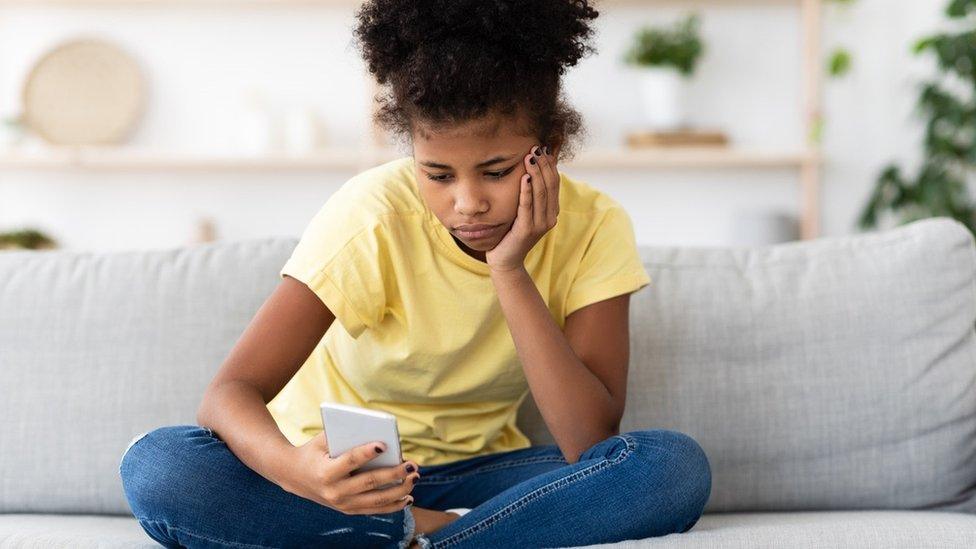Instagram criticised for hiding research into teenagers
- Published
- comments

Facebook - which owns Instagram - has been criticised for hiding research it has done about how social media affects young people.
Journalists at The Wall Street Journal found that over the last two years, Instagram carried out many focus groups, online surveys and diary studies, into how young people felt using their app - but didn't share the results.
Some of the research they found showed that young people blamed Instagram for increased levels of anxiety and depression.
In response to the report, Instagram has said the research shows their "commitment to understanding complex and difficult issues young people may struggle with".
What else did the findings show?
Instagram is popular with young children, despite a joining age of 13
The Wall Street Journal also found a presentation from 2019, which had a slide in it that said: "We make body-image issues worse for one in three teenage girls".
There was also a slide which said "Teens blame Instagram for increases in the rate of anxiety and depression".
In 2020, research found that 32% of teenage girls they'd surveyed said that, when they felt bad about their bodies, Instagram made them feel worse.
In 2021, Facebook carried out research into tens of thousands of people, that matched people's responses with its own data about how much time people spent on Instagram and what they looked at.
What have Instagram said?
"While the story focuses on a limited set of findings and casts them in a negative light, we stand by this research." said Instagram in a blog post.
"Based on our research and feedback from experts, we've developed features so people can protect themselves from bullying, we've given everyone the option to hide 'like' counts and we've continued to connect people who may be struggling with local support organisations."
Instagram also said it was working on prompts, which would encourage people who kept looking at negative subjects, to look at different topics.
Instagram also promised to be more "transparent" and open about its research in future.
What have other people said?
Lots of social media companies are under growing pressure to find ways to ensure children are protected
MP Damian Collins, who is in charge of the UK parliamentary committee looking at how big technology should be regulated to protect people's safety, said it was time to "hold them to account".
"Its own research is telling it that a large number of teen Instagram users say the service makes them feel worse about themselves - but the company just wants to make sure they keep coming back." he said.
Fairplay (previously named: Campaign for a Commercial-Free Childhood) - is a campaign group from the US, and it said the news showed that Instagram was no place for children.
"Facebook downplayed the negative effects of its product and hid this research from the public and even from members of Congress who specifically asked for it," Fairplay said.
What is happening moving forward?
Earlier this year Facebook announced that it was planning to create an advert-free Instagram for under-13s, which it said was designed to keep them safe.
However, the proposal was met with a lot of criticism from campaign groups, including Fairplay, who signed an open letter to Facebook's founder Mark Zuckerberg, to try to block it.
The UK government is working on an important legal document called the Online Safety Bill.
The Bill aims to give Ofcom (a group which regulates media in the UK) the power to fine companies (like Instagram or TikTok) by law, if they fail to remove harmful or upsetting material.
- Published29 September 2017
- Published12 May 2021
- Published19 March 2021
